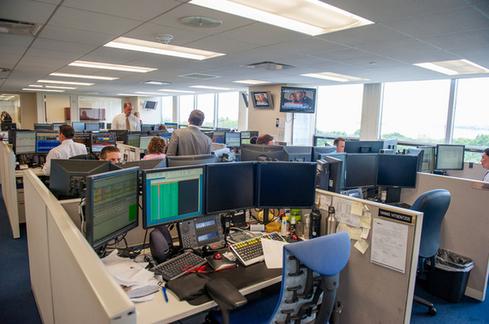11:45 AM
JPMorgan Stymied in Push to Get Beyond 'London Whale' Trades
Jamie Dimon's whale is turning into an albatross.
Dimon, CEO of JPMorgan Chase & Co, has had to postpone new repurchases of the bank's stock, and on Wednesday regulators forced his company to reduce its calculation of its capital cushion against losses, all because of derivatives losses related to a trader known as the "London Whale."
In a filing on Thursday with the Securities and Exchange Commission, JPMorgan said it now hopes to restart its stock buyback program in the first quarter of 2013, roughly three months later than the goal Dimon set in a meeting with institutional investors and stock analysts in July.
The company also disclosed in the filing that regulators had forced the bank to recalculate capital levels to reflect their views on risk models the company used for some of its positions, including some at its Chief Investment Office, which racked up the derivatives losses.
JPMorgan changed a key risk model in the CIO and lost control over the accuracy of its financial reporting in the first quarter as the office built up a massive credit derivatives portfolio that had trading losses of nearly $6 billion.
JPMorgan, whose $2.29 trillion of assets make it the biggest U.S.-based bank, said it was informed on Wednesday by the U.S. Office of Comptroller of the Currency and the Federal Reserve Bank of New York that changes were needed in its capital calculations.
As a result of the changes, the frequently used capital measure called the "Basel I Tier 1 common ratio" was trimmed to 9.9 percent, as of June 30, from 10.3 percent.
The new reading remains significantly higher than the 5 percent level at which banks are considered well-capitalized under Federal Reserve stress tests.
JPMorgan said it believes that steps it is taking with its portfolio and market risk models will "significantly" reduce the adjustments by the end of the year.
Former CIO trader Bruno Iksil became known in the derivatives market as the "London Whale" for the size of the positions he took. The name has stuck to the affair even as the bank has said others were involved.
The losses, a major embarrassment for Dimon, also led JPMorgan on Thursday to formally restate its first-quarter results, as it previously said it would.
Though the losses were never seen as big enough to threaten JPMorgan's position as one of the strongest U.S. banks, the company suspended stock repurchases in May to rebuild capital it had lost.
Dimon said in April that he wanted to buy back shares when they were cheap to increase the value of the remaining shares outstanding. He suggested then that the shares were a bargain for the company at less than about $45.
The shares traded Thursday afternoon at $36.97, down 0.5 percent for the day and 9 percent lower than before the derivatives problem was disclosed by the company on May 10.
For JPMorgan to resume stock repurchases, it must win approval from the Federal Reserve after another annual stress test of its balance sheet, and the company's board of directors must complete its own investigation of the CIO, according to the Thursday filing.
At least 11 governmental bodies from around the world are investigating the CIO debacle, according to the filing. They include agencies from Japan, Germany and Singapore, as well as the United States and UK.
Risks from lawsuits rose during the quarter amid the government investigations and new claims by private investors over the CIO mess. The company said it is "reasonably possible" it could have losses of as much as $5.3 billion in excess of litigation reserves, which was up from $4.2 billion at the end of March. The company does not disclose the size of its reserves for lawsuits.
Copyright 2010 by Reuters. All rights reserved.




















